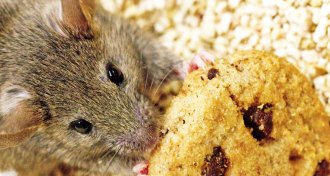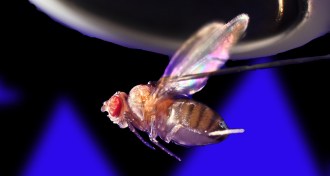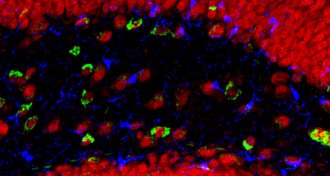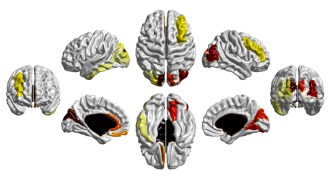Neuroscience
-
 Neuroscience
NeuroscienceJust one night of poor sleep can boost Alzheimer’s proteins
Deep sleep may prevent the buildup of Alzheimer’s proteins.
-
 Neuroscience
NeuroscienceBrains encode faces piece by piece
Cells in monkey brains build up faces by coding for different characteristics.
-
 Neuroscience
NeuroscienceObscure brain region linked to feeding frenzy in mice
Nerve cells in a little-studied part of the brain exert a powerful effect on eating, a mouse study suggests.
-
 Neuroscience
NeuroscienceInternal compass guides fruit fly navigation
Experiments show how flies navigate — and why this might be important for humans.
By Laura Beil -
 Neuroscience
NeuroscienceA baby’s pain registers in the brain
EEG recordings can help indicate whether a newborn baby is in pain, a preliminary study suggests.
-
 Neuroscience
NeuroscienceNerve cell miswiring linked to depression
A gene helps nerve cell axons extend to parts of the brain to deliver serotonin, a brain chemical associated with depression.
-
 Neuroscience
NeuroscienceBrain gains seen in elderly mice injected with human umbilical cord plasma
Plasma from human umbilical cord blood refreshes aspects of learning and memory in mice.
-
 Humans
HumansScientists seek early signs of autism
The search for autism biomarkers, in the blood and the brain, is heating up.
-
 Neuroscience
NeuroscienceFood odors are more enticing to sleep-deprived brains
Sleep deprivation makes the brain more sensitive to food smells.
-
 Neuroscience
NeuroscienceMore brain differences seen between girls, boys with ADHD
ADHD looks different in the cerebellums of girls and boys with the condition.
-
 Neuroscience
NeuroscienceSarcasm looks the same in the brain whether it’s words or emoji
Sarcasm via winking emoji affects the brain like verbal irony does.
-
 Neuroscience
NeuroscienceMath-anxious brains tackle simple problems differently
An fMRI study found more variable brain activity in people who get nervous about math problems.